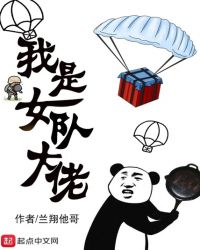SELECTIONS FROM THE SONG OF ROLAND.
您可以在百度里搜索“National Epics 艾草文学(www.321553.xyz)”查找最新章节!
SELECTIONS FROM THE SONG OF ROLAND.
THE HORN.
The Rear Guard of the French army, left behind at Roncesvalles, under Roland, was attacked by a great host of Moors. In the beginning of the battle Olivier besought Roland to recall the emperor by blowing the olifant, whose sound could be heard for many leagues, but Roland refused. But when he saw the overwhelming forces of the Moors, and the field strewn with the corpses of the French, he resolved to blow the horn.
Seeing so many warriors fall'n around,
Rollánd unto his comrade Olivier
Spoke thus: "Companion fair and dear, for God
Whose blessing rests on you, those vassals true
And brave lie corses on the battle-field:
Look! We must mourn for France so sweet and fair,
From henceforth widowed of such valiant knights.
Carle, 'would you were amongst us, King and friend!
What can we do, say, brother Olivier,
To bring him news of this sore strait of ours!"
Olivier answers: "I know not; but this
I know; for us is better death than shame."
Aoi.
Rollánd says: "I will blow mine olifant,
And Carle will hear it from the pass. I pledge
My word the French at once retrace their steps."
Said Olivier: "This a great shame would be,
One which to all your kindred would bequeathe
A lifetime's stain. When this I asked of you,
You answered nay, and would do naught. Well, now
With my consent you shall not;—if you blow
Your horn, of valor true you show no proof.
Already, both your arms are drenched with blood."
Responds the count: "These arms have nobly struck."
Aoi.
"The strife is rude," Rollánd says; "I will blow
My horn, that Carle may hear."—Said Olivier:
"This would not courage be. What I desired,
Companion, you disdained. Were the king here,
Safe would we be, but yon brave men are not
To blame."—"By this my beard," said Olivier,
"I swear, if ever I see again sweet Aude,
My sister, in her arms you ne'er shall lie."
Aoi.
Rollánd asked Olivier—"Why show to me
Your anger, friend?"—"Companion, yours the fau<
True courage means not folly. Better far
Is prudence than your valiant rage. Our French
Their lives have lost, your rashness is the cause.
And now our arms can never more give Carle
Their service good. Had you believed your friend,
Amongst us would he be, and ours the field,
The King Marsile, a captive or a corse.
Rollánd, your valor brought ill fortune, nor
Shall Carle the great e'er more our help receive,
A man unequalled till God's judgment-day.
Here shall you die, and dying, humble France, . . .
This day our loyal friendship ends—ere falls
The Vesper-eve, dolorously we part!"
Aoi.
The archbishop heard their strife. In haste he drives
Into his horse his spurs of purest gold,
And quick beside them rides. Then chiding them,
Says: "Sire Rollánd, and you, Sire Olivier,
In God's name be no feud between you two;
No more your horn shall save us; nathless't were
Far better Carle should come and soon avenge
Our deaths. So joyous then these Spanish foes
Would not return. But as our Franks alight,
Find us, or slain or mangled on the field,
They will our bodies on their chargers' backs
Lift in their shrouds with grief and pity, all
In tears, and bury us in holy ground:
And neither wolves, nor swine, nor curs shall feed
On us—" Replied Rollánd: "Well have you said."
Rollánd raised to his lips the olifant,
Drew a deep breath, and blew with all his force.
High are the mountains, and from peak to peak
The sound re-echoes; thirty leagues away
'T was heard by Carle and all his brave compeers.
Cried the king: "Our men make battle!" Ganelon
Retorts in haste: "If thus another dared
To speak, we should denounce it as a lie."
Aoi.
The Count Rollánd in his great anguish blows
His olifant so mightily, with such
Despairing agony, his mouth pours forth
The crimson blood, and his swol'n temples burst.
Yea, but so far the ringing blast resounds;
Carle hears it, marching through the pass, Naimes harks,
The French all listen with attentive ear.
"That is Rollánd's horn!" Carle cried, "which ne'er yet
Was, save in battle, blown!" But Ganelon
Replies: "No fight is there! you, sire, are old,
Your hair and beard are all bestrewn with gray,
And as a child your speech. Well do you know
Rollánd's great pride. 'Tis marvellous God bears
With him so long. Already took he Noble
Without your leave. The pagans left their walls
And fought Rollánd, your brave knight, in the field;
With his good blade he slew them all, and then
Washed all the plain with water, that no trace
Of blood was left—yea, oftentimes he runs
After a hare all day and blows his horn.
Doubtless he takes his sport now with his peers;
And who 'neath Heav'n would dare attack Rollánd?
None, as I deem. Nay, sire, ride on apace;
Why do you halt? Still far is the Great Land."
Aoi.
Rollánd with bleeding mouth and temples burst,
Still, in his anguish, blows his olifant;
Carle hears it, and his Franks. The king exclaims:
"That horn has a long breath!" Duke Naimes replies:
"Rollánd it is, and in a sore distress,
Upon my faith a battle rages there!
A traitor he who would deceive you now.
To arms! Your war-cry shout, your kinsman save!
Plainly enough you hear his call for help."
Aoi.
Carle orders all the trumpeters to sound
The march. The French alight. They arm themselves
With helmets, hauberks and gold-hilted swords,
Bright bucklers, long sharp spears, with pennons white
And red and blue. The barons of the host
Leap on their steeds, all spurring on; while through
The pass they march, each to the other says:
"Could we but reach Rollánd before he dies,
What deadly blows, with his, our swords would strike!"
But what avails? Too late they will arrive.
Aoi.
The ev'n is clear, the sun its radiant beams
Reflects upon the marching legions, spears,
Hauberks and helms, shields painted with bright flowers,
Gold pennons all ablaze with glitt'ring hues.
Burning with wrath the emperor rides on;
The French with sad and angered looks. None there
But weeps aloud. All tremble for Rollánd.
The king commands Count Ganelon be seized
And given to the scullions of his house.
Their chief, named Bègue, he calls and bids: "Guard well
This man as one who all my kin betrayed."
Him Bègue received, and set upon the count
One hundred of his kitchen comrades—best
And worst; they pluck his beard on lip and cheek;
Each deals him with his fist four blows, and falls
On him with lash and stick; they chain his neck
As they would chain a bear, and he is thrown
For more dishonor on a sumpter mule,
There guarded so until to Carle brought back.
Aoi.
High are the mountains, gloomy, terrible,
The valleys deep, and swift the rushing streams.
In van, in rear, the brazen trumpets blow,
Answering the olifant. With angry look
Rides on the emp'ror; filled with wrath and grief,
Follow the French, each sobbing, each in tears,
Praying that God may guard Rollánd, until
They reach the battle-field. With him what blows
Will they not strike! Alas? what boots it now?
Too late they are and cannot come in time.
Aoi.
Carle in great anger rides—his snow-white beard
O'erspreads his breast-plate. Hard the barons spur,
For never one but inwardly doth rage
That he is far from their great chief, Rollánd,
Who combats now the Saracens of Spain:
If wounded he, will one of his survive?
O God! What knights those sixty left by him!
Nor king nor captain better ever had....
Aoi.
Rabillon's Translation. National Epics




